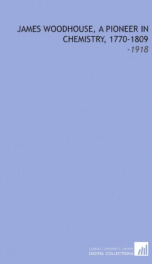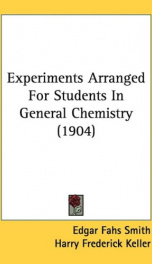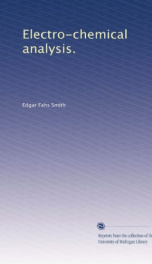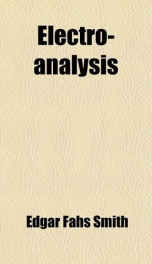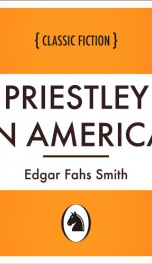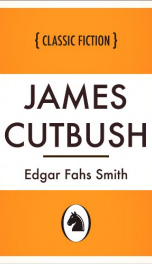chemistry in old philadelphia
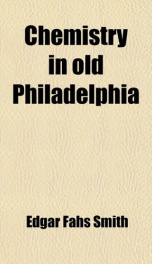
Purchase of this book includes free trial access to www.million-books.com where you can read more than a million books for free. This is an OCR edition with typos. Excerpt from book: in so doing saved the lives of thousands of his fellow citizens. He was a very religious man, though Dr. Weir Mitchell once said to me, " Rush could swear harder and pray longer than any man in town." His students were devoted to him, and his interest in their personal welfare is shown in the following quotation from a letter to one of them who had settled in a distant western village: " My advice to you is to remain where you are. You will grow with the growth of the settlement. Purchase, if possible, and upon credit, a small farm. A little debt will make you industrious and furnish you with an excuse to send in your bills as soon as your patients recover. . . . A competence, books, ' alternate labor and ease,' . . . a good wife, a few friends, vicinity to a church, and a conduct regulated by the principles of the Gospel, constitute the sum total of all the happiness this world is capable of giving, and these may all be possessed and enjoyed in your present position." But dark days for the colony were approaching. Men's minds were then, as they are to-day, filled with serious affairs, and while research in chemistry was prosecuted, it did not command attention to the exclusion of all else. As " Old Philadelphia " was the theatre in which were enacted so many of the momentous deeds of the Revolutionary period it is in vain to search for evidences of activity in chemistry then. It was only at the termination of hostilitiesin the early years of the last decade of the eighteenth centurythat the science again appears. It is observed in theses of medical students. In most instances it is rather methods of chemical analysis which are discernible and, singularly enough, in connection with plants or botanical subjects, or, in not a few instances, with fluids of the body, the blood...
Info about the book
Author:
Series:
Unknown
ISBN:
5874363343
Rating:
5/5 (4)Your rating:
0/5
Languge:
English
Users who have this book
Users who want this book
What readers are saying
What do you think? Write your own comment on this book!
write a commentif you like chemistry in old philadelphia try:
Do you want to read a book that interests you? It’s EASY!
Create an account and send a request for reading to other users on the Webpage of the book!

